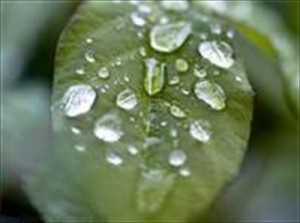Daily Water Wisdom
The past few weeks have been the hottest on record for many parts of the country and my area is no exception. The pinch of a high water bill can send an already tight household budget over the proverbial waterfall.
Here in California water is a precious commodity, one that we fight over, protect and conserve on a daily basis. Many strides have been made in water efficient appliances, but there is still more we can do regardless of where in the country you live. Homeowners can go native with landscape plants or use micro sprinklers that direct water to the roots of a plant rather than water the surrounding area, or install low-flow toilets and showerheads. In the garden we can “put the drops on the crops” with the use of drip irrigation and micro sprinklers.
But with a dry summer such as we’re in amplifies just how fragile our water systems really are. Much of the water that flows from rivers to streams to creeks comes from winter snow pack in mountains that may be hundreds of miles away. When this water source is cut availability to many populations is reduced creating a supply and demand situation, sometimes meaning reductions in use.
Reservoirs and water banking help even out the highs and lows of supply, but many areas still rely on natural rainfall to provide the necessary water to crops and livestock. This uncertainly makes it important to become as water wise as possible—wet year or dry year.
To become more water efficient inside and outside try implementing these helpful water tips:
- Take shorter showers or use only a few inches of water in the tub
- Turn off the faucet while brushing teeth
- Use a broom or a blower to clean sidewalks and driveways
- Adjust sprinklers to water only planted areas and not walkways or the driveway
- Wash only full loads of laundry
- Use grey water on non-edible plants and trees
- Run the dishwasher only when full
- Fix leaky faucets and toilets
- Adjust automatic waterers to prevent overflow
- Use water from cooking on potted plants
- Mulch flowerbeds and gardens to help retain moisture
- Research the water requirements for plants to prevent over watering
- Empty water from troughs and fonts on plants when cleaning and changing
As we see the effects lack of water has on our crops and our food system it is in our best interest to look at saving more water and storing more water on a larger scale for the long term, it is important to become more water wise day by day.

Recent comments
Aenean nonummy hendrerit mauris. Phasellus porta.